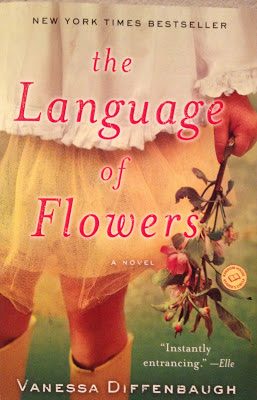I love reading more than anything. I adore writing only slightly less than reading. Why, oh why, do I totally blank when conjuring literary commentary?
I don’t know the answer. When recommending a meaningful read, my monologue usually plays like this:
“It was just SO good, you know? So good. Like, you have to read it! It will change your life! It was just. So. Good.”
You see why Amazon hasn’t flooded my inbox with requests.
Which is a darn shame because there are a TON of significant stories in the world, especially for those of us trying to live with a servant’s heart.
I’ve come up with a solution. Periodically, I will share certain books I think you will appreciate diving into, but you have to promise not to judge my amateur descriptions. Mmm-k?
The Language of Flowers, by Vanessa Diffenbaugh
When I volunteered with Project Lemonade, a charity serving the clothing needs for local foster children, I received The Language of Flowers as a thank you gift. Little did I know then how much this book would affect my heart.
The story begins with Victoria, now 18, aging out of the foster system. Victoria’s social worker tries to help her establish with her new life, but the late-teen carries years of anger and the walls she’s built around her will not crumble.
Victoria possesses a floral passion, knowing symbolism of each bloom. Though she’s created a fortress around her, she communicates through her roses, her calla lilies, her cactuses. (Cacti?)
The novel brings love, hate, hurt, and heart to a subject not often addressed: What happens to emancipated foster kids?
Deep into her own book a few days ago, my 10 year old glanced up and asked, “Mom? Do you ever just get a main character so much you can feel her? Like when she gets hurt, you have pain?”
“Yes,” I answered, “And that character’s name is Victoria.”
Author Vanessa Diffenbaugh co-founded The Camillia Network, a non-profit dedicated to helping teens after aging out of the foster care system. Read about the program here. If you aren’t already touched by all this organization accomplishes, you will be motivated to help after finishing Diffenbaugh’s fictional account of a girl who needs to be loved.
Related Posts:
Welcome Boxes for Foster Children
Website:

Leave a Reply